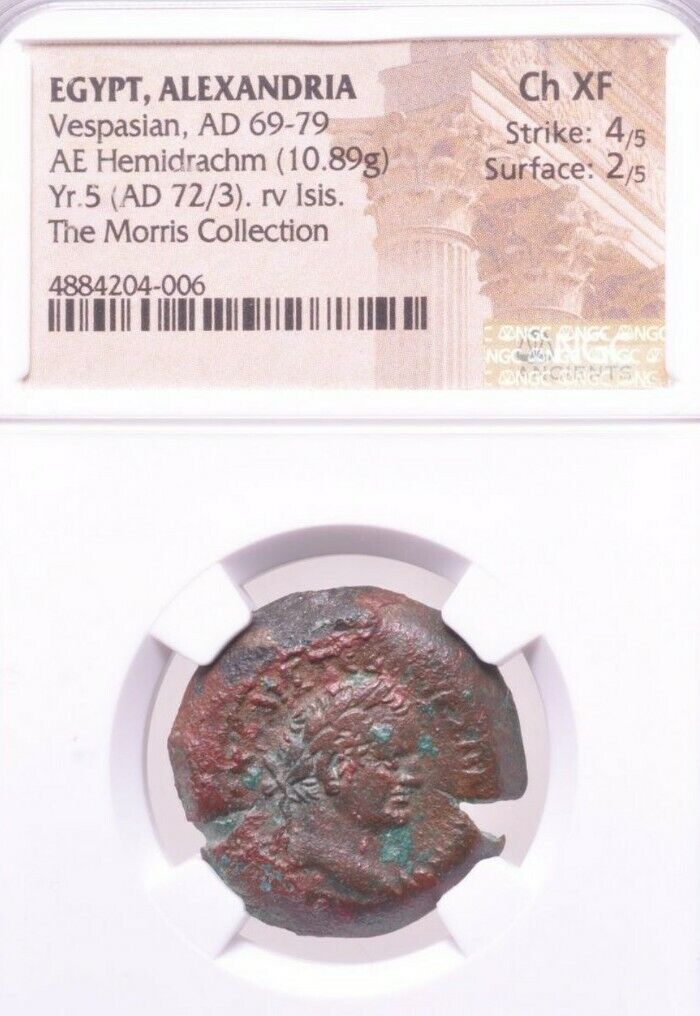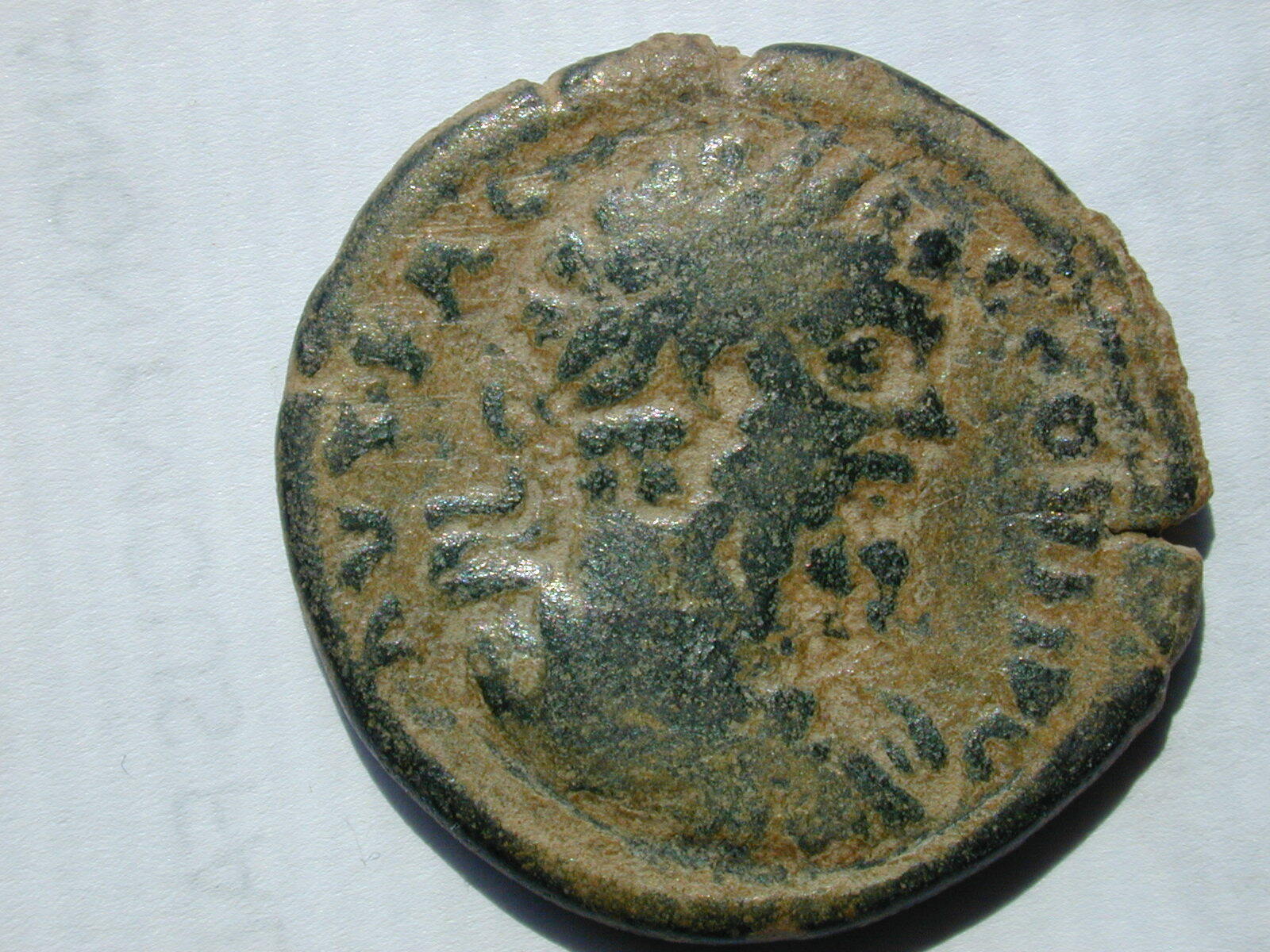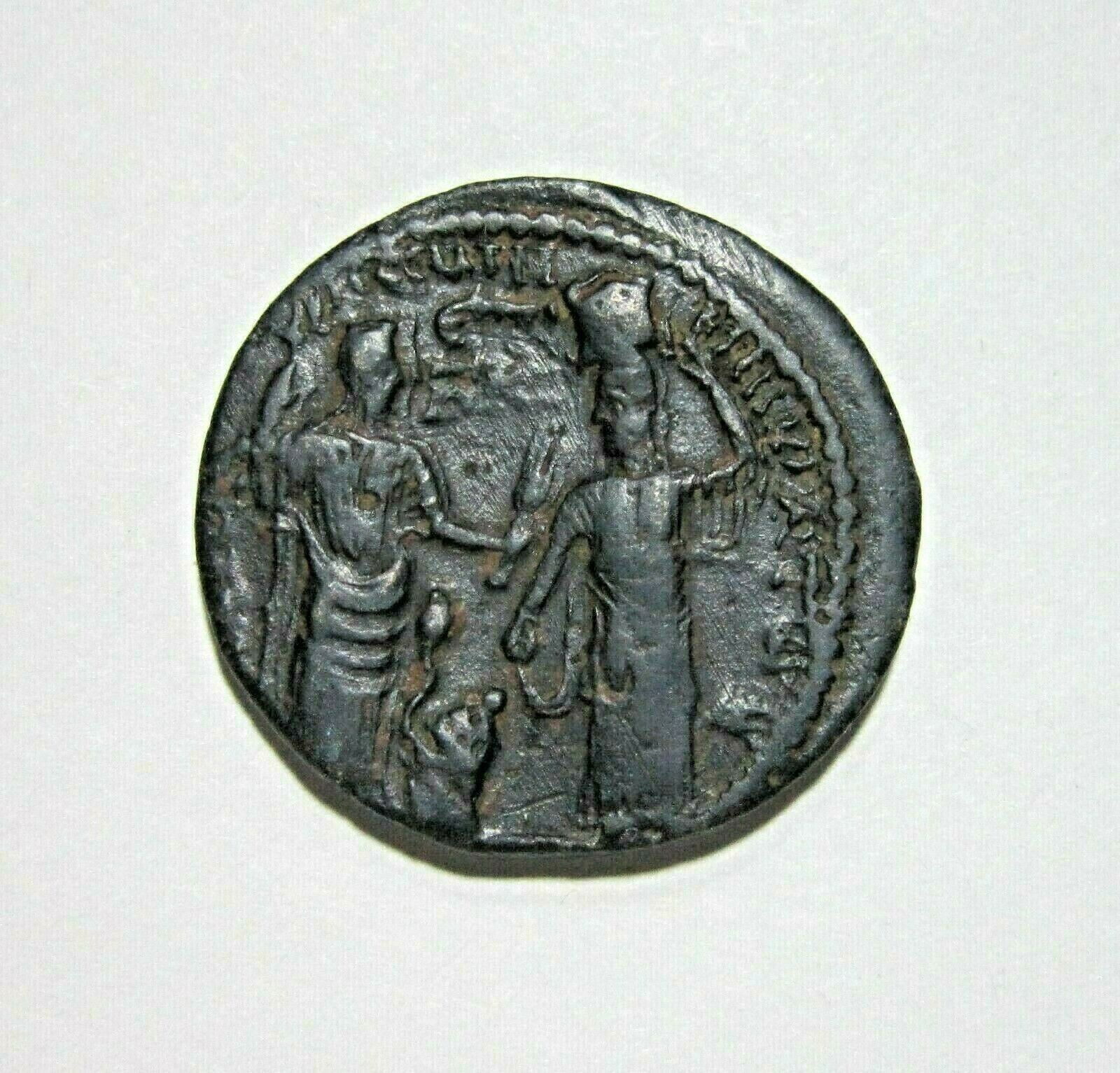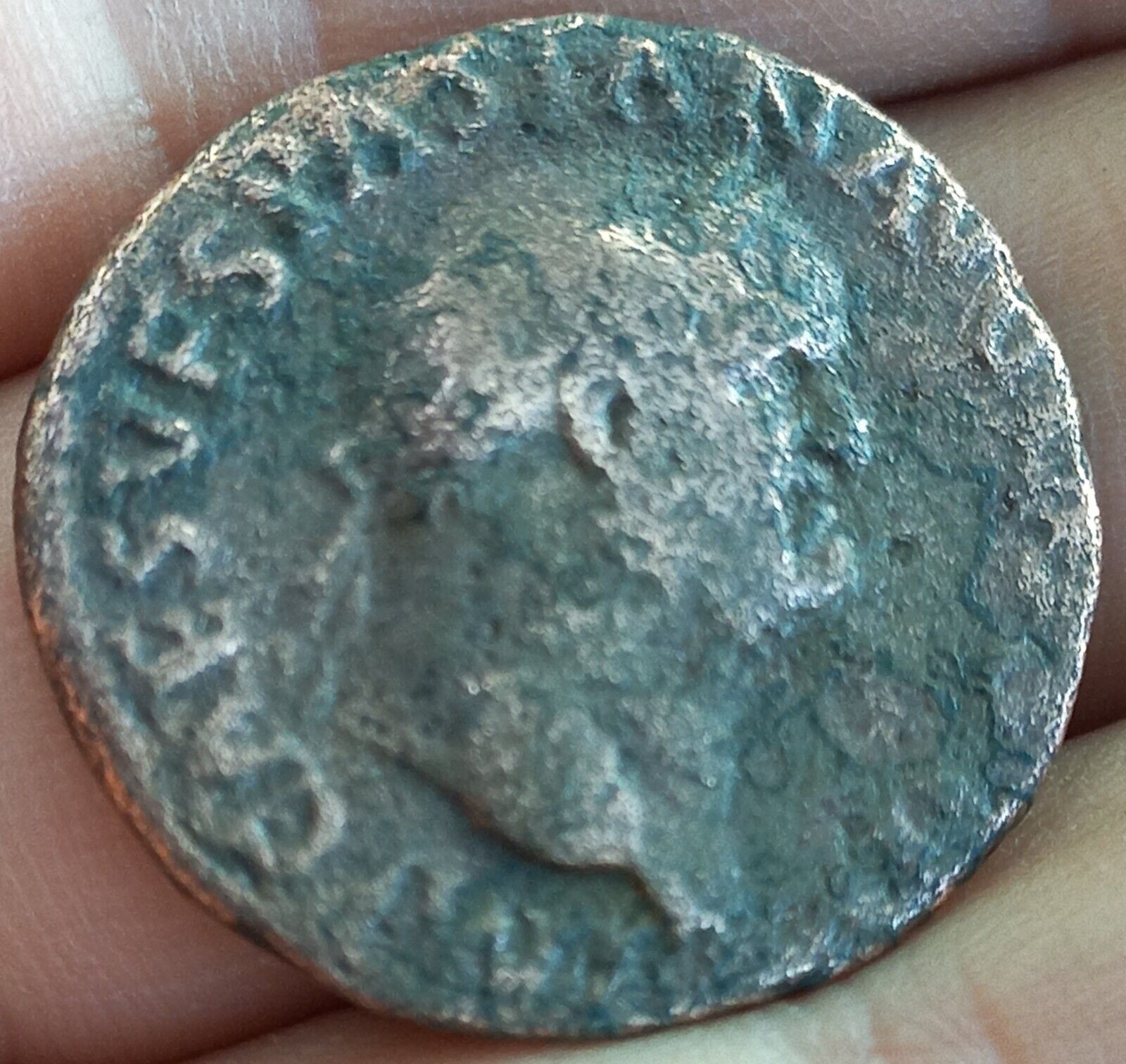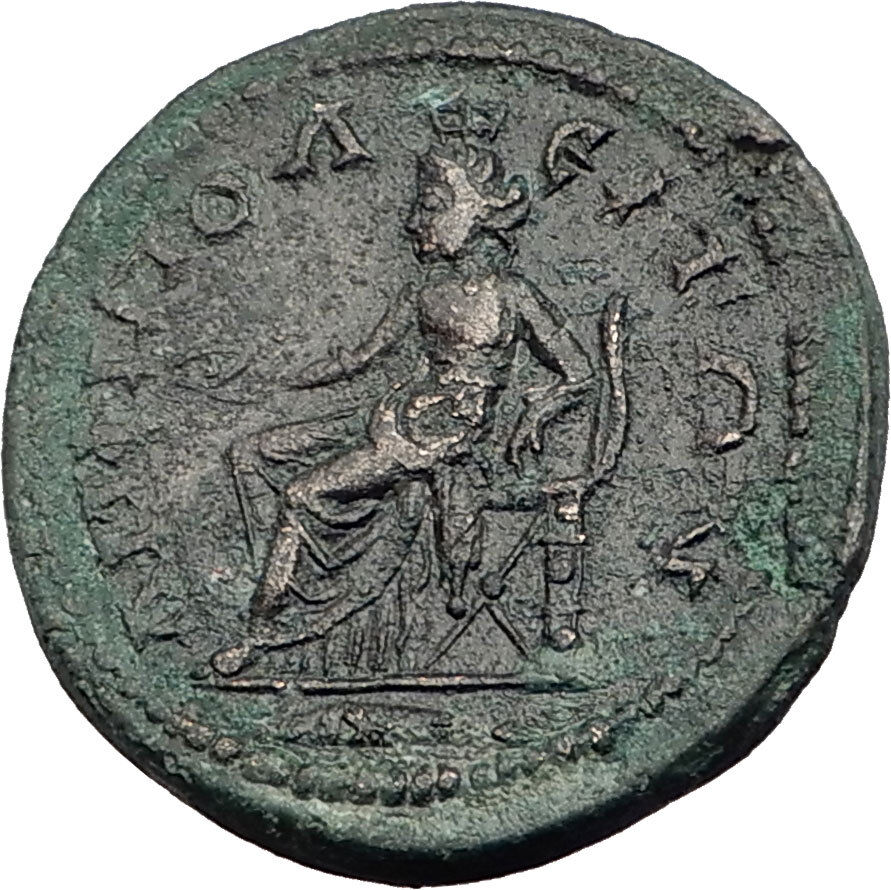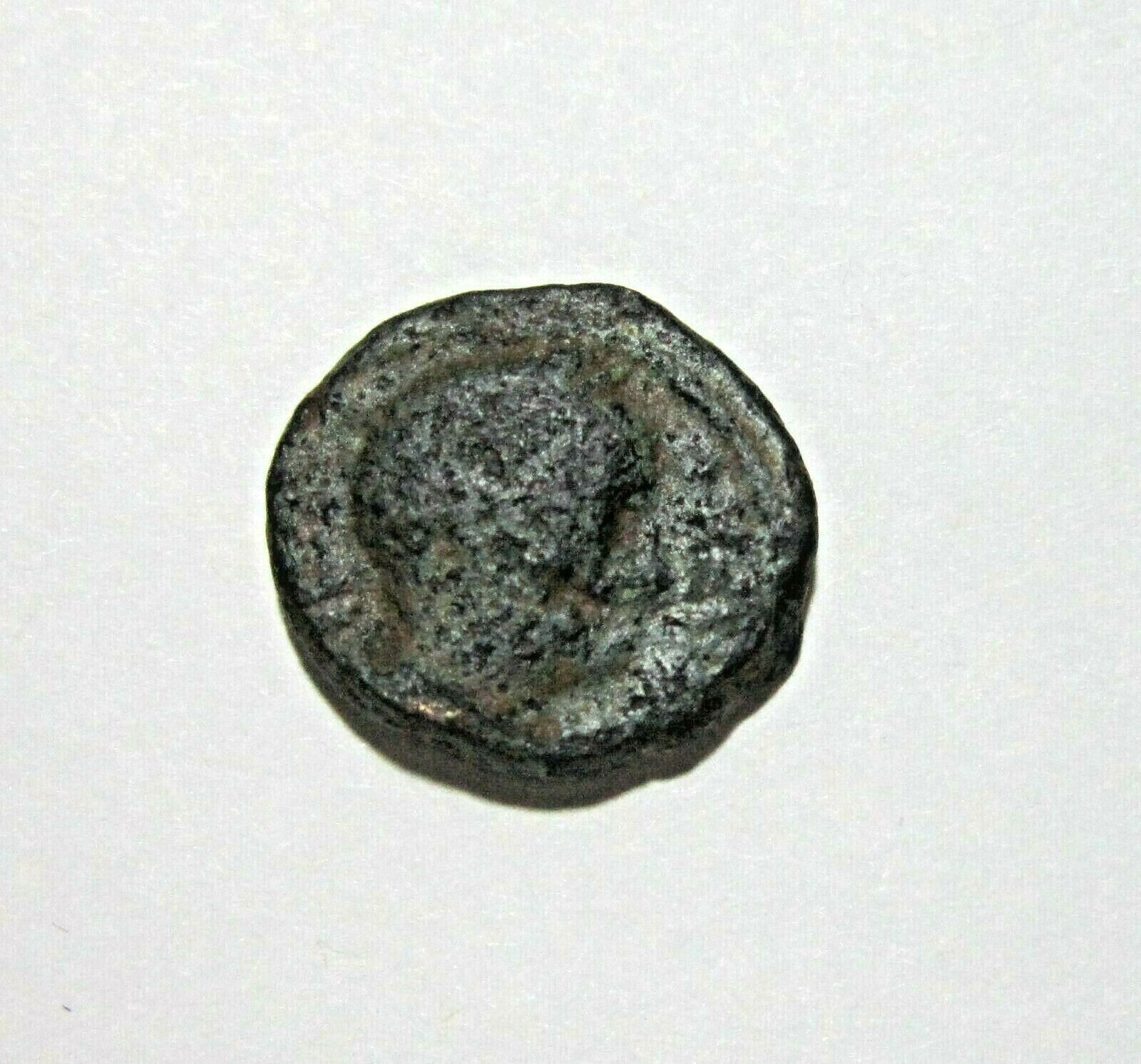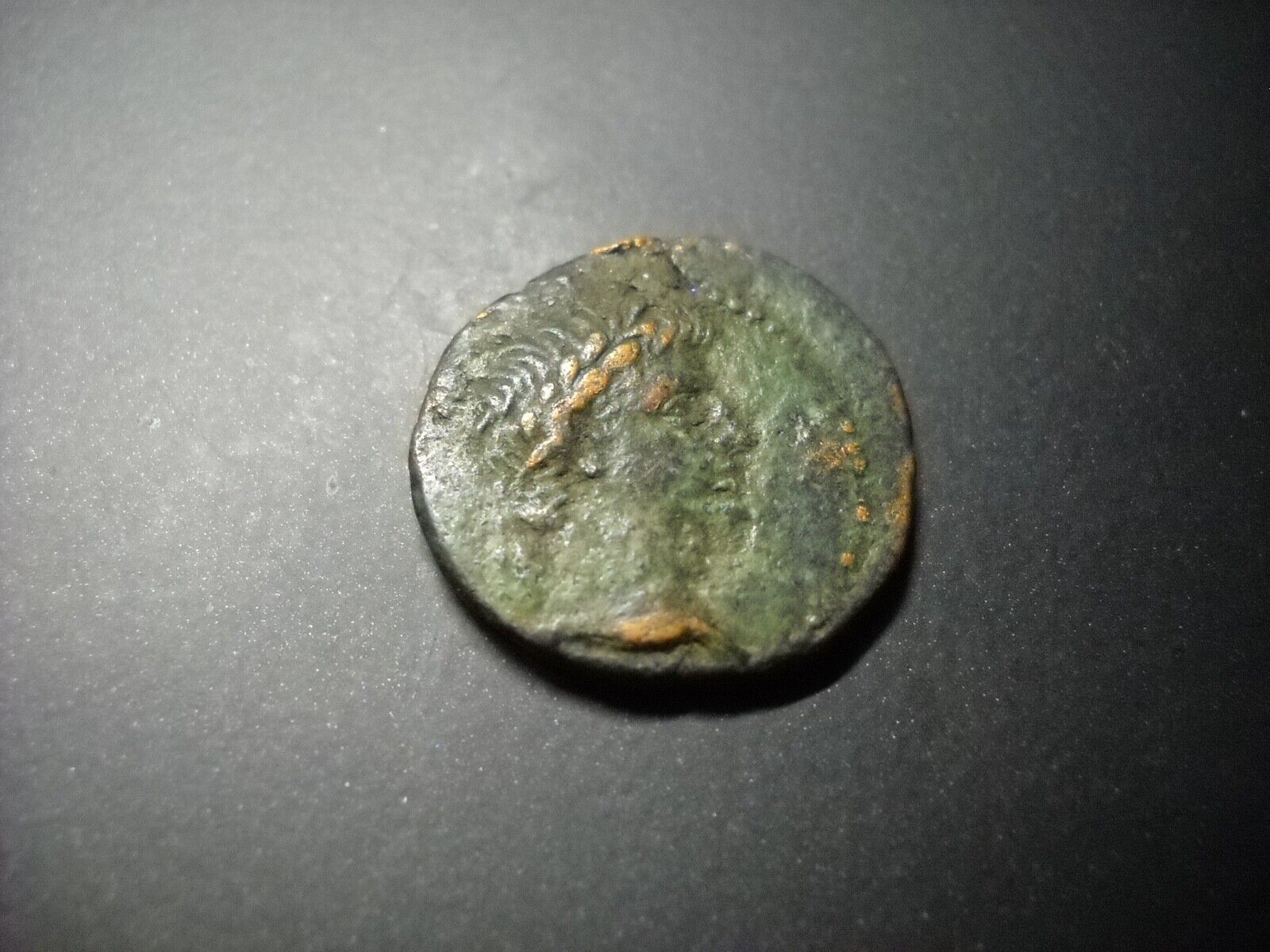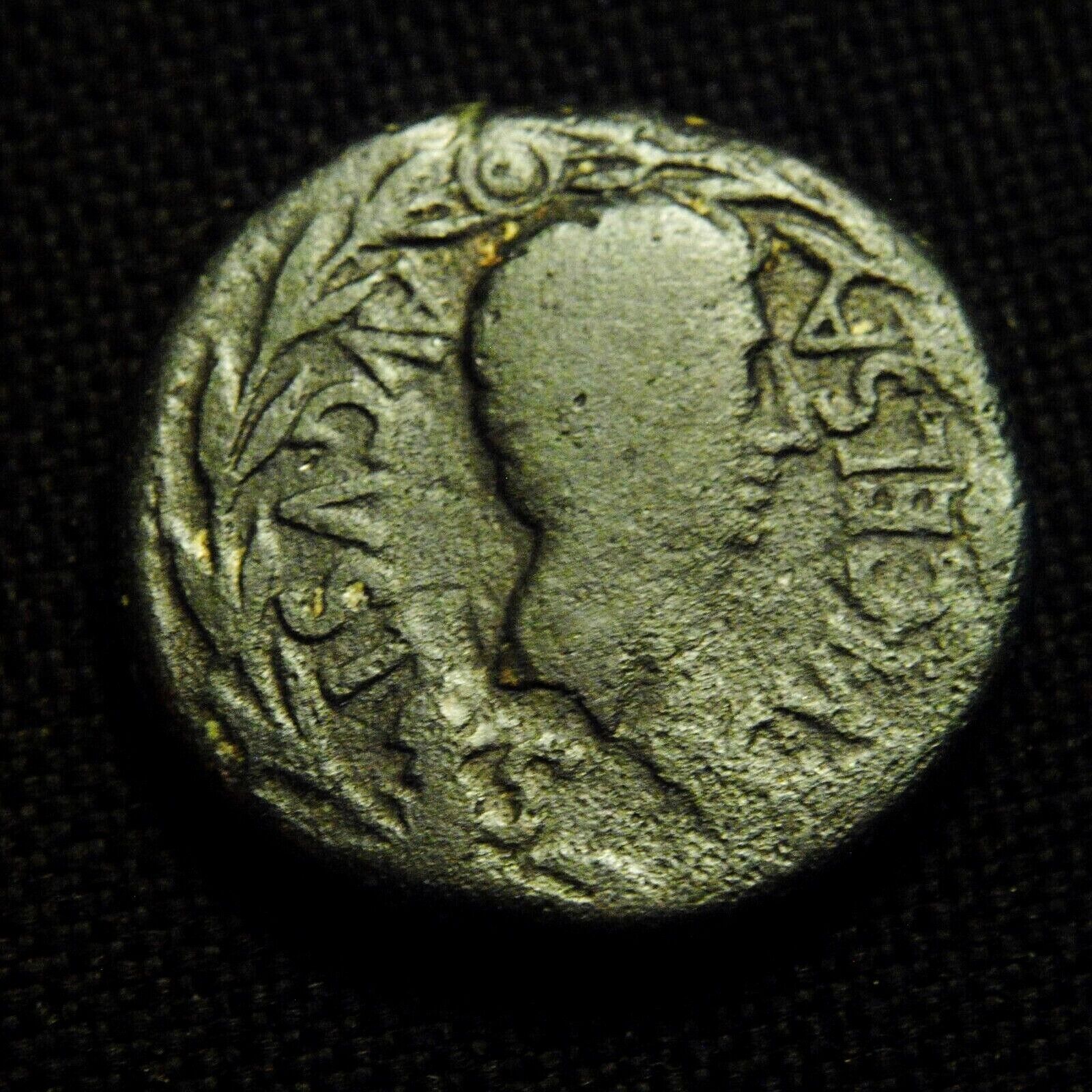-40%
SEVERUS ALEXANDER and JULIA MAESA 222AD Marcianopolis Homonoia Roman Coin i50885
$ 89.76
- Description
- Size Guide
Description
Item:i50885
Authentic Ancient Coin of:
Severus Alexander
-
Roman Emperor
: 222-235 A.D.
Severus Alexander and Julia Maesa
Bronze 27mm (12.68 grams) of
<="" font="" face="Times New Roman" color="#000000"> Marcianopolis in Moesia Inferior
under Legate Tiberius Julius Festus
AVT K M AVP CEVH
ΑΛΕΞΑΝΔΡΟC ΙΟVΛΙΑ ΜΑΙCA,
Laureate draped and cuirassed bust of Severus Alexander on left facing right toward diademed draped bust of Julia Maesa facing left on right.
V Π TIB IOVΛ ФHCTOV MAPKIANOΠOΛITΩN, Homonoia standing left, holding patera and cornucopia; E in field to right.
You are bidding on the exact item pictured, provided with a Certificate of Authenticity and Lifetime Guarantee of Authenticity.
Homonoia was a minor goddess of concord, unanimity, and oneness of mind in classical
Greek
culture. Her opposite number was
Eris (Strife)
. She is associated with
Praxidike
the goddess of judicial
punishment
, the exacter of vengeance. Praxidike's daughters were
Arete
(a goddess personifying
virtue
) and
Harmonia
(the very spirit of concord). As such Homonoia was probably closely identified with the Theban Goddess-Queen
Harmonia
.
Marcianopolis
, or
Marcianople
was an ancient Roman city in
Thracia
. It was located at the site of modern day
Devnya
,
Bulgaria
.
The city was so renamed by Emperor
Trajan
after his sister
Ulpia Marciana
, and was previously known as Parthenopolis. Romans repulsed a
Gothic
attack to this town in
267
(or
268
), during the reign of
Gallienus
.
Diocletian
made it the capital of the
Moesia Secunda
province.
Valens
made it his winter quarters in 368 and succeeding years, Emperor
Justinian I
restored and fortified it. In 587, it was sacked by the king of the
Avars
but at once retaken by the Romans. The Roman army quartered there in 596 before crossing the Danube to assault the Avars.
Between 893 and 972 it was one of the most important medieval cities in south-eastern Europe.
Julia Maesa
(
7 May
ca. 165
AD
–ca.
3 August
224
) was a
Roman
citizen and daughter of
Julius Bassianus
, priest of the sun god
Heliogabalus
, the patron god of Emesa (modern
Homs
) in the
Roman province
of
Syria
. Grandmother of both the
Roman emperors
Elagabalus
and
Alexander Severus
, she figured prominently in the ascension of each to the title at the age of fourteen.
Like her younger sister
Julia Domna
, she was among the most important women to exercise power behind the throne in the
Roman empire
.
Julia Maesa was married to Syrian noble
Julius Avitus
and had two daughters
Julia Soaemias
and
Julia Avita Mamaea
each one mother of an emperor. Following the accession to the throne of her brother in law
Septimius Severus
, Julia Maesa moved to Rome to live with her sister. After the murder of her nephew, the emperor
Caracalla
, and the suicide of Julia Domna, she was compelled to return to Syria. But the new emperor
Macrinus
did not proscribe her and allowed her to keep her money.
Once back in Syria and possessed of ample funds, Maesa engaged in a plot to overthrow Macrinus and place one of her grandsons,
Elagabalus
son of Julia Soaemias, in his place. In order to legitimise this pretension, mother and daughter fomented the rumor that the 14 year old boy was Caracalla's illegitimate son. The two Julias were successful, mainly due to the fact that Macrinus was of an obscure origin without the proper political connections, and Elagabalus became emperor.
For her loyalty and support, Elagabalus honored Julia Maesa with the title
Augusta avia Augusti
(Augusta, grandmother of Augustus). When the teenager proved to be a disaster as emperor scorning Roman values with both religious and sexual scandals (even taking the liberty of marrying a
Vestal virgin
among a rumored five wives during his brief four years reign), Julia Maesa decided to promote instead her fourteen year-old grandson
Alexander Severus
.
She convinced Elagabalus to adopt Alexander as his heir and he was murdered shortly afterwards by the
praetorian guard
alongside his mother, both being thrown into the
Tiber river
in contempt after being dragged from the palace and through the streets, when a rumor circulated that Alexander had died.
Julia Maesa died in an uncertain date around 226 and like her sister Domna before her, was deified.
SEVERUS ALEXANDER
Augustus:
A.D. 222-235
Caesar:
A.D. 221-222 under Elagabalus
Son of Julia Mamaea
Husband of Orbiana
Grandson of Julia Maesa
Nephew of Julia Soaemias
Cousin of Elagabalus
Second-cousin of Caracalla and Geta
Great-newphew of Septimius Severus and Julia Domna
Marcus Aurelius Severus Alexander
(October 1, 208–March 18, 235 AD), commonly called
Alexander Severus
, was the last
Roman emperor
(11 March 222–235) of the
Severan dynasty
. Alexander Severus succeeded his cousin,
Elagabalus
upon the latter's assassination in 222 AD, and was ultimately assassinated himself, marking the
epoch event
for the
Crisis of the Third Century
—nearly fifty years of disorder, Roman civil wars, economic chaos, regional rebellions, and external threats that brought the Empire to near-collapse.
Alexander Severus was the
heir apparent
to his cousin, the eighteen-year-old Emperor who had been murdered along with his mother by his own guards—and as a mark of contempt, had their remains cast into the
Tiber river
. He and his cousin were both grandsons of the influential and powerful
Julia Maesa
, who had arranged for Elagabalus' acclamation as Emperor by the famed
Third Gallic Legion
.
A rumor of Alexander's death circulated, triggering the assassination of Elagabalus.
Alexander's reign was marked by troubles. In military conflict against the rising
Sassanid Empire
, there are mixed accounts, though the Sassanid threat was checked. However, when campaigning against
Germanic tribes
of
Germania
, Alexander Severus apparently alienated his legions by trying diplomacy and bribery, and they assassinated him.
Life
Alexander was born with the name
Marcus Julius Gessius Bassianus Alexianus
. Alexander's father,
Marcus Julius Gessius Marcianus
was a Syrian
Promagistrate
. His mother
Julia Avita Mamaea
was the second daughter of
Julia Maesa
and Syrian noble
Julius Avitus
and maternal aunt of Emperor
Elagabalus
. He had an elder sister called Theoclia and little is known about her. Alexander's maternal great-aunt was empress
Julia Domna
(also Maesa's younger sister) and his great-uncle in marriage was emperor Lucius
Septimius Severus
. Emperors
Caracalla
and
Publius Septimius Geta
, were his mother's maternal cousins. In 221, Alexander's grandmother, Maesa, persuaded the emperor to adopt his cousin as successor and make him
Caesar
and Bassianus changed his name to Alexander. In the following year, on March 11, Elagabalus was murdered, and Alexander was proclaimed emperor by the
Praetorians
and accepted by the Senate.
When Alexander became emperor, he was young, amiable, well-meaning, and entirely under the dominion of his mother. Julia Mamaea was a woman of many virtues, and she surrounded the young emperor with wise counsellors. She watched over the development of her son's character and improved the tone of the administration. On the other hand, she was inordinately jealous. She also alienated the army by extreme parsimony, and neither she nor her son were strong enough to impose military discipline. Mutinies became frequent in all parts of the empire; to one of them the life of the jurist and praetorian praefect
Ulpian
was sacrificed; another compelled the retirement of
Cassius Dio
from his command.
On the whole, however, the reign of Alexander was prosperous until the rise, in the east, of the
Sassanids
. Of the war that followed there are various accounts. (
Mommsen
leans to that which is least favourable to the Romans). According to Alexander's own dispatch to the senate, he gained great victories. At all events, though the Sassanids were checked for the time, the conduct of the Roman army showed an extraordinary lack of discipline. The emperor returned to
Rome
and celebrated a triumph in 233.
The following year he was called to face German invaders in
Gaul
, who had breached the Rhine frontier in several places, destroying forts and over-running the countryside. Alexander mustered his forces, bringing legions from the eastern provinces, and crossed the Rhine into Germany on a pontoon bridge. Initially he attempted to buy the German tribes off, so as to gain time. Whether this was a wise policy or not, it caused the Roman legionaries to look down on their emperor as one who was prepared to commit unsoldierly conduct.
Herodian
says "in their opinion Alexander showed no honourable intention to pursue the war and preferred a life of ease, when he should have marched out to punish the Germans for their previous insolence". These circumstances drove the army to look for a new leader. They chose
Gaius Iulius Verus Maximinus
, a Thracian soldier who had worked his way up through the ranks.
Following the nomination of Maximinus as emperor, Alexander was slain (on either March 18 or March 19, 235), together with his mother, in a mutiny of the
Primigenia
Legio XXII
. These assassinations secured the throne for Maximinus.
The death of Alexander is considered as the end of the
Principate
system established by
Augustus
. Although the
Principate
continued in theory until the reign of
Diocletian
, Alexander Severus' death signalled the beginning of the chaotic period known as the
Crisis of the Third Century
which weakened the empire considerably.
Legacy
Alexander was the last of the Syrian emperors. Under the influence of his mother, he did much to improve the morals and condition of the people. His advisers were men like the famous jurist Ulpian, the historian Cassius Dio and a select board of sixteen senators; a municipal council of fourteen assisted the urban praefect in administering the affairs of the fourteen districts of Rome. The luxury and extravagance that had formerly been so prevalent at the court were put down; the standard of the coinage was raised; taxes were lightened; literature, art and science were encouraged; the lot of the soldiers was improved; and, for the convenience of the people, loan offices were instituted for lending money at a moderate rate of interest.
In religious matters Alexander preserved an open mind. It is said that he was desirous of erecting a temple to the
founder of Christianity
, but was dissuaded by the pagan priests.
Marriage
Alexander was married three times. His most famous wife was
Sallustia Orbiana
,
Augusta
,
whom he married in 225. He divorced and exiled her in 227, after her father,
Seius Sallustius
, was executed for attempting to assassinate the emperor. Another wife was Sulpicia Memmia. Her father was a man of consular rank; her grandfather's name was
Catulus
.
="">
Frequently Asked Questions
How long until my order is shipped?
Depending on the volume of sales, it may take up to 5 business days for shipment of your order after the receipt of payment.
How will I know when the order was shipped?
After your order has shipped, you will be left positive feedback, and that date should be used as a basis of estimating an arrival date.
After you shipped the order, how long will the mail take?
USPS First Class mail takes about 3-5 business days to arrive in the U.S., international shipping times cannot be estimated as they vary from country to country. I am not responsible for any USPS delivery delays, especially for an international package.
What is a certificate of authenticity and what guarantees do you give that the item is authentic?
Each of the items sold here, is provided with a Certificate of Authenticity, and a Lifetime Guarantee of Authenticity, issued by a world-renowned numismatic and antique expert that has identified over 10000 ancient coins and has provided them with the same guarantee. You will be quite happy with what you get with the COA; a professional presentation of the coin, with all of the relevant information and a picture of the coin you saw in the listing.
Compared to other certification companies, the certificate of authenticity is a -50 value. So buy a coin today and own a piece of history, guaranteed.
Is there a money back guarantee?
I offer a 30 day unconditional money back guarantee. I stand behind my coins and would be willing to exchange your order for either store credit towards other coins, or refund, minus shipping expenses, within 30 days from the receipt of your order. My goal is to have the returning customers for a lifetime, and I am so sure in my coins, their authenticity, numismatic value and beauty, I can offer such a guarantee.
Is there a number I can call you with questions about my order?
You can contact me directly via ask seller a question and request my telephone number, or go to my About Me Page to get my contact information only in regards to items purchased on eBay.
When should I leave feedback?
Once you receive your order, please leave a positive. Please don't leave any negative feedbacks, as it happens many times that people rush to leave feedback before letting sufficient time for the order to arrive. Also, if you sent an email, make sure to check for my reply in your messages before claiming that you didn't receive a response. The matter of fact is that any issues can be resolved, as reputation is most important to me. My goal is to provide superior products and quality of service.



